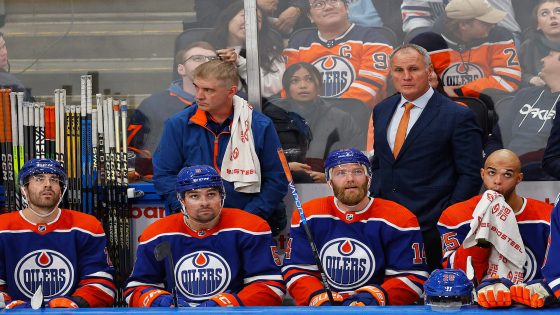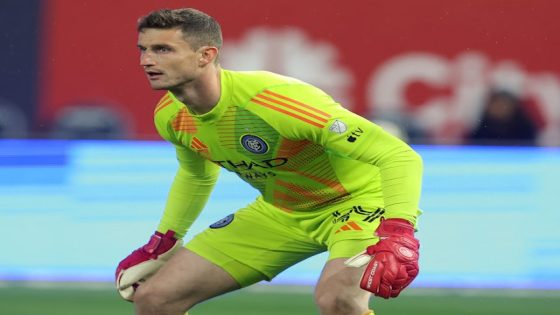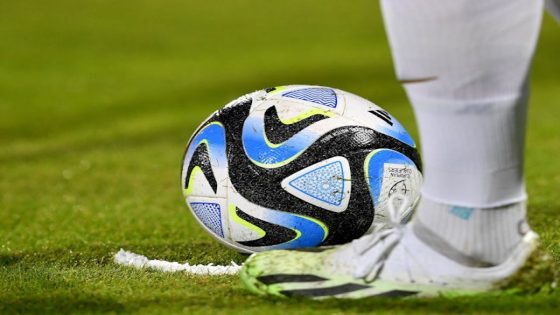EDMONTON — The whiteboard hanging on a wall in Paul Coffey’s office at Rogers Place has a beaming message on it.
“How do we get Better Today!!!” it reads.
It’s a message for him, and it’s a message for his Edmonton Oilers defense corps.
And truth be told, all they’ve done since Coffey went behind the Oilers bench to coach the D in mid-November is indeed get better.
A move that raised eyebrows around the league has turned out to look rather clever. It raised eyebrows, of course, because the Hockey Hall of Famer had zero NHL coaching experience. But similar to how Hockey Hall of Famer Martin St. Louis has clearly connected to his players in Montreal despite no previous coaching experience, Coffey has formed a bond with his defensemen here in Oil country that’s manifested on the ice with improved all-around game.
“They’ve been a great group to work with. We’ve challenged each other,” Coffey told The Athletic during a sit-down interview in his office Monday.
It begins with an honest line of communication. No B.S.
Coffey points to a 5-0 loss in Dallas earlier this month to illustrate that.
“I saw Eky (Mattias Ekholm) and Nursey (Darnell Nurse) in the morning before we got on the bus. I said, ‘You guys got a sec?’ I said, ‘What would you do if you were me? If you were the coach right now?’”
Nurse, according to Coffey, responded: “I’d be pissed off.”
“I said, ‘No, no. That was last night. I’m past that,’” Coffey recalled. “I said, ‘What would you do right now? Because here’s where I’m at: I don’t know if you guys are good enough.’ And they said, ‘What do you mean?’ I said, ‘We just got beat by a good hockey club, and we were nowhere to be found. I know you guys got better than that.’”
Coffey didn’t mean those two players in particular. He meant all six defensemen as a group. But Nurse and Ekholm being the veterans, Coffey felt it important to talk to them. Both players texted Coffey later the same day, “saying that they would be better.” Coffey said.
“Those are my two leaders back there — my veteran guys,” he said. “The most important thing is, any time you can put it on the players and challenge them and they tell you what they’re going to do? That’s what you want.”
Coffey coached both his sons in hockey (they’re 25 and 21 now) and points to the experience as helping him relate and communicate with the Oilers defensemen. Especially as far as being patient.
“I’m an elderly statesman at 62,” he said with a smile. “These guys are still kids. I told them from Day 1, ‘If you guys are willing to listen and learn and go through this journey together, we’re going to have a real good time. If you’re not, I’m not afraid to butt heads with anybody.’
“And I have with a couple of them, but it’s always over quickly and done with and the next day is another day. It’s been fun.”
Good thing he changed his mind after initially turning down Jeff Jackson’s offer to step behind the bench and join new head coach Kris Knoblauch when the changes were made Nov. 12.
The Oilers’ CEO of Hockey Operations was convinced Coffey would be a big addition. Since Coffey already knew the defensemen in his existing role in the front office, it seemed like a logical extension.
“He would talk to them on a fairly regular basis the last few years, share pointers,” Jackson said Tuesday. “And while he didn’t have NHL coaching experience, I just felt he had such a wealth of knowledge, it was a natural fit. I honestly didn’t view it as risky at all. It just made sense to me.”
Obviously for the players, it took a minute to get used to looking over your shoulder during a game and having one of the greatest defensemen in NHL history standing there coaching you.
“You look up in the rafters and his name is up there, and next thing he’s coaching you behind the bench,” Nurse said with a smile Monday. “It’s pretty cool. His eye for the game, even though he played in a different era, the way he saw the game then relates so well to the game today. I think that’s what makes him so good at what he does.”
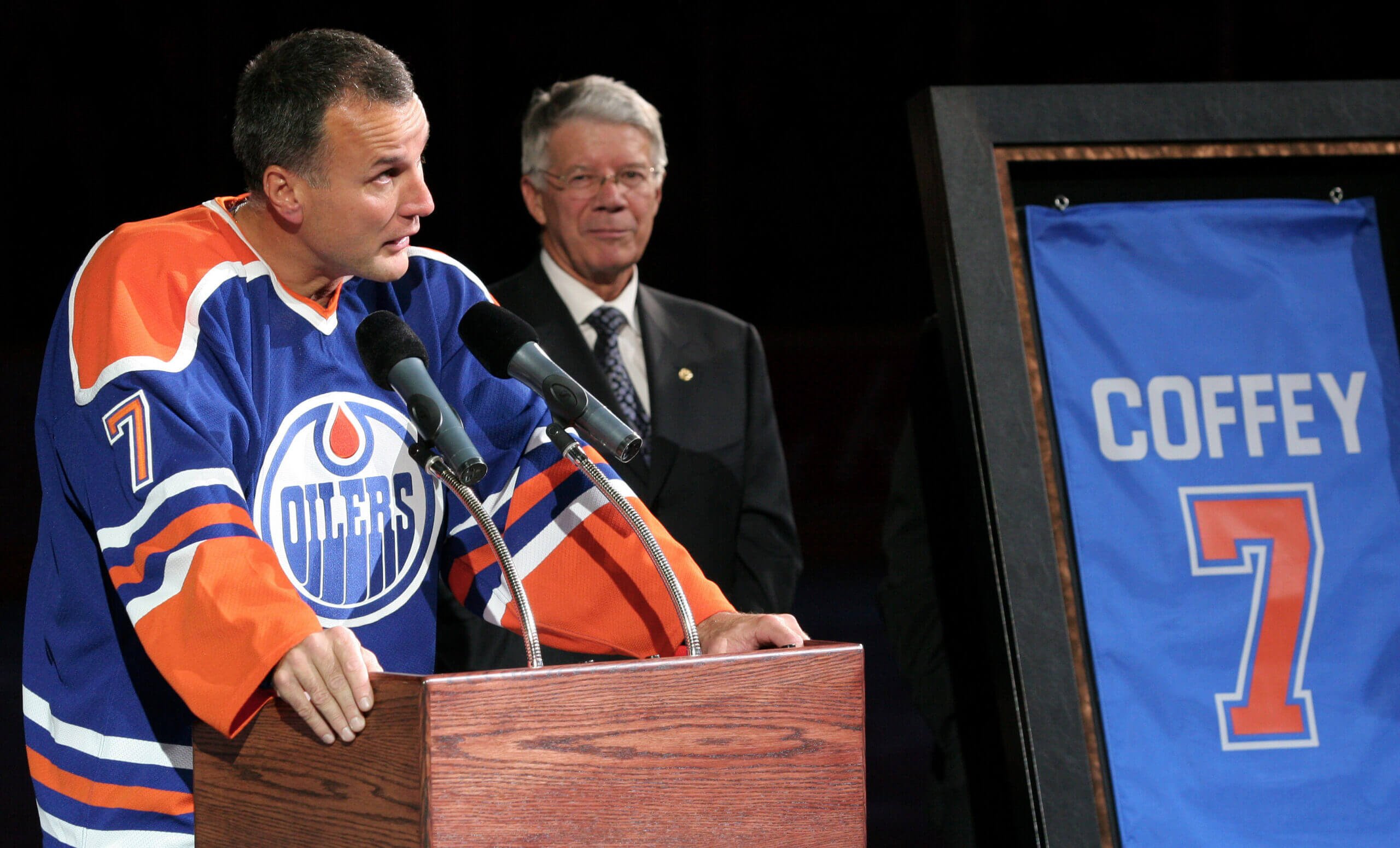
Paul Coffey delivers a speech at his jersey retirement ceremony in 2005. (Tim Smith / Getty Images)
Added defenseman Evan Bouchard, who has had a career season: “It’s been nice to have him behind the bench, one of the world’s greatest defensemen to ever play the game. The advice he gives you, you really try to take it in and apply it.”
Defenseman Cody Ceci says even just starting to talk with Coffey a few years ago when he first joined the organization was special.
“I remember the first text he had sent me after a game, just having his name pop up in your phone is pretty cool,” Ceci said. “And now to get a chance to work with him every day, it’s pretty awesome. Just the way he sees the game, and what he’s done for the game, too.”
Two things quickly reveal themselves when talking to the Oilers’ defensemen about Coffey.
The first is how positive he is behind the bench.
“He’s been great that way, just always positive on the bench,” Ceci said. “That helps our group stay calm.”
Added Bouchard: “He gives everyone a pat on the back and a second to breathe, relax and just make plays out there. Because he’s confident and knows our ability. And he always has our back no matter what.”
Which is interesting to hear, given that when he played, Coffey was known for being so competitive he’d always have a scowl on his face.
“Oh no, he’s still got that,” Nurse said, laughing. “But no, that’s the biggest thing, he wants you to have that confidence to go out there and try to make those plays and defend aggressively. He doesn’t want you on your heels. Everything he has talked about is just pushing more — not in the sense of risking anything but just wants more out of us.”
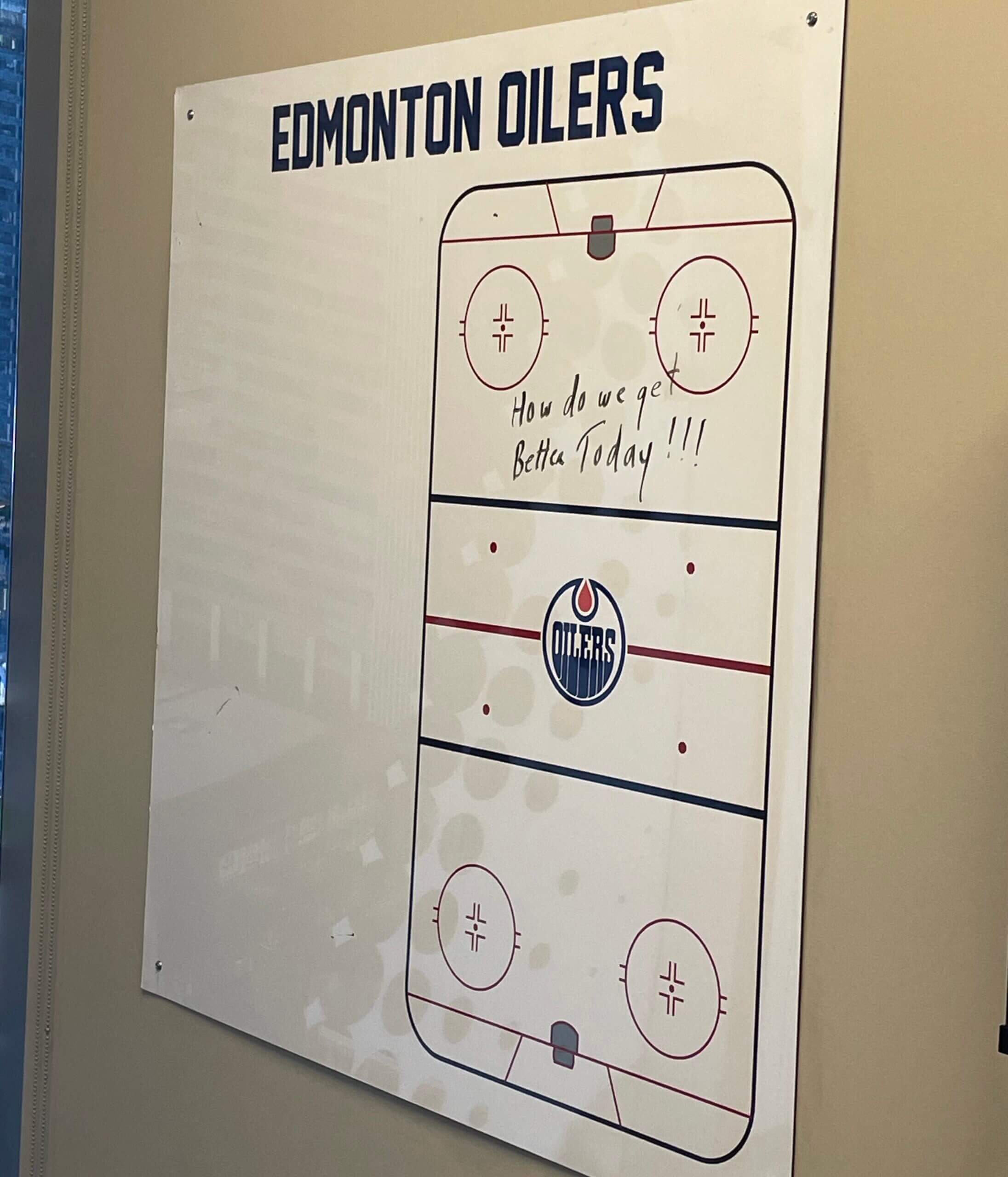
The whiteboard in Paul Coffey’s office contains only positive vibes. (Pierre LeBrun / The Athletic)
Positive reinforcement is important to Coffey. He learned that from coaching his kids.
“It’s no different with these guys,” Coffey said. “The biggest key for me is this: You can’t overcoach. You cannot overcoach. You’ve got to let them do their thing. For the most part, they know what they could’ve done better. I don’t need to tell them, right? But I think I learned that from my dad. Even though he had a quick temper, he was a positive guy.
“Because if you tell your kids long enough they’re not doing a good job, guess what, they’re not going to do a good job. So you try to instill confidence in these guys. The worst-case scenario is to play to survive.”
No. 2 is Coffey’s emphasis on making plays, not just getting rid of the puck. That’s no surprise there given how Coffey played.
“He’s not trying to take anything away from the D,” Nurse said. “He’s trying to continuously talk to us about making more plays, be more active defensively, he’s always trying to add to our game. That’s why the group has listened so much to him, because he’s just built us up.”
Added Bouchard: “He really harps on making plays, not just rimming the puck; and I think that kind of feeds into my game a little bit and gives me confidence to do so.”
And from Ceci: “Instead of chasing it around more than we want to, just holding onto the puck, making those plays, giving us confidence. And when we’re a confident group, we’re playing well.”
Coffey cracks a smile when asked about his constant preaching about making plays.
“Well, if I’m going to stand there for two and a half hours, I want to be entertained,” he said.
In all seriousness, when you have superstar forwards like Connor McDavid and Leon Draisaitl on your team, there’s a particular onus on defensemen to make plays instead of panicking and clearing the puck off the glass all the time.
“First thing I said to the D: ‘You want the forwards to like you? Put the puck on their stick,’” Coffey said. “You have time to put it around the boards? You have time to make a play.”
Another thing Coffey did early after going behind the bench was have all the defensemen’s dressing room stalls placed next to each other. Before that, they were scattered around the room regardless of position. He wanted his defensemen sitting together.
“Way easier to communicate that way,” Coffey said. “Could never figure out why it wasn’t like that before. Partners talking to each other, right?”
The other part of it nobody could know for sure was how Coffey would mesh with Knoblauch, a first-time NHL head coach. But that’s worked out very well, too.
“My office is in between Ken Holland and Paul Coffey,” Knoblauch said Monday. “So a wealth of knowledge and experience to absorb. I’m very fortunate. Paul’s been outstanding to work with on the bench. He’s very optimistic and pushes especially the defensemen to be better every day and not let up. And I think with his experience and knowledge, the defensemen have really benefited from his words.
“I also have.”
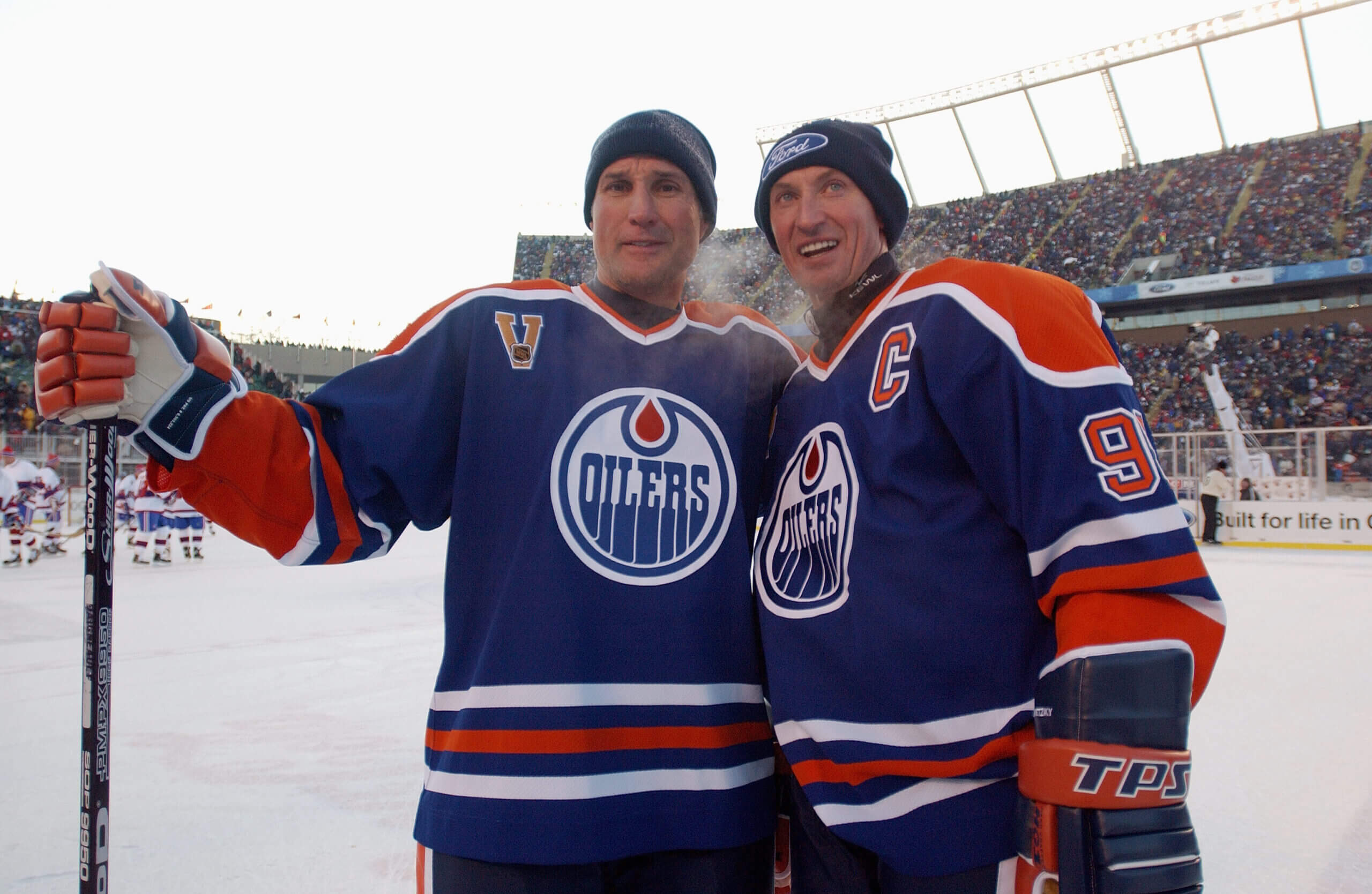
Paul Coffey, here with Wayne Gretzky, is a link to the Oilers’ glory days. (Dave Sandford / Getty Images)
The other reason Coffey joining the coaching staff raised eyebrows was because, in his role as special adviser to Oilers owner Daryl Katz, he’s the de facto No. 2 in the organization. There’s no other coach in the NHL with that kind of dual role.
“It is unique, and it’s something I don’t take lightly,” Coffey said. “I have a responsibility. Daryl is an incredible man, a brilliant man. You don’t get to where he got without being brilliant. And I feel privy to be able to talk to him, sometimes two, three times a day.
“He’s instilled some confidence in me. He’s a great owner. Daryl is very passionate about his team and appreciates and thanks Oilers fans everywhere.”
Coffey has also drawn a clear line between his roles. That was important to him, and he said Katz understands that.
“When I come through these doors, I’m a coach,” Coffey said. “Kris is the head coach. I do what I can do. I bring some experience to it. I said to them the other day, ‘Guys, I’ve got more experience than all you guys. You know why? Because I’m the oldest prick in here.”‘
A wry laugh.
The whole Oilers staff has coached longer than him, of course. But none of them played alongside Wayne Gretzky and Mario Lemieux — or, as Coffey pointed out, played for the likes of Glen Sather in Edmonton, Mike Keenan in the Canada Cup, Bob Johnson in Pittsburgh, a young Paul Maurice in Hartford, etc.
“They all had great things to add,” Coffey said. “Some of it you take. Some of it you don’t. But especially with our D, I try to coach the way I wanted to be coached. Honest and up front. Give them confidence.”
Five replica Stanley Cups greet the Oilers players when they walk into their dressing room. It’s a reminder of this organization’s glory years, which Coffey was part of. It may be a burden at times, too.
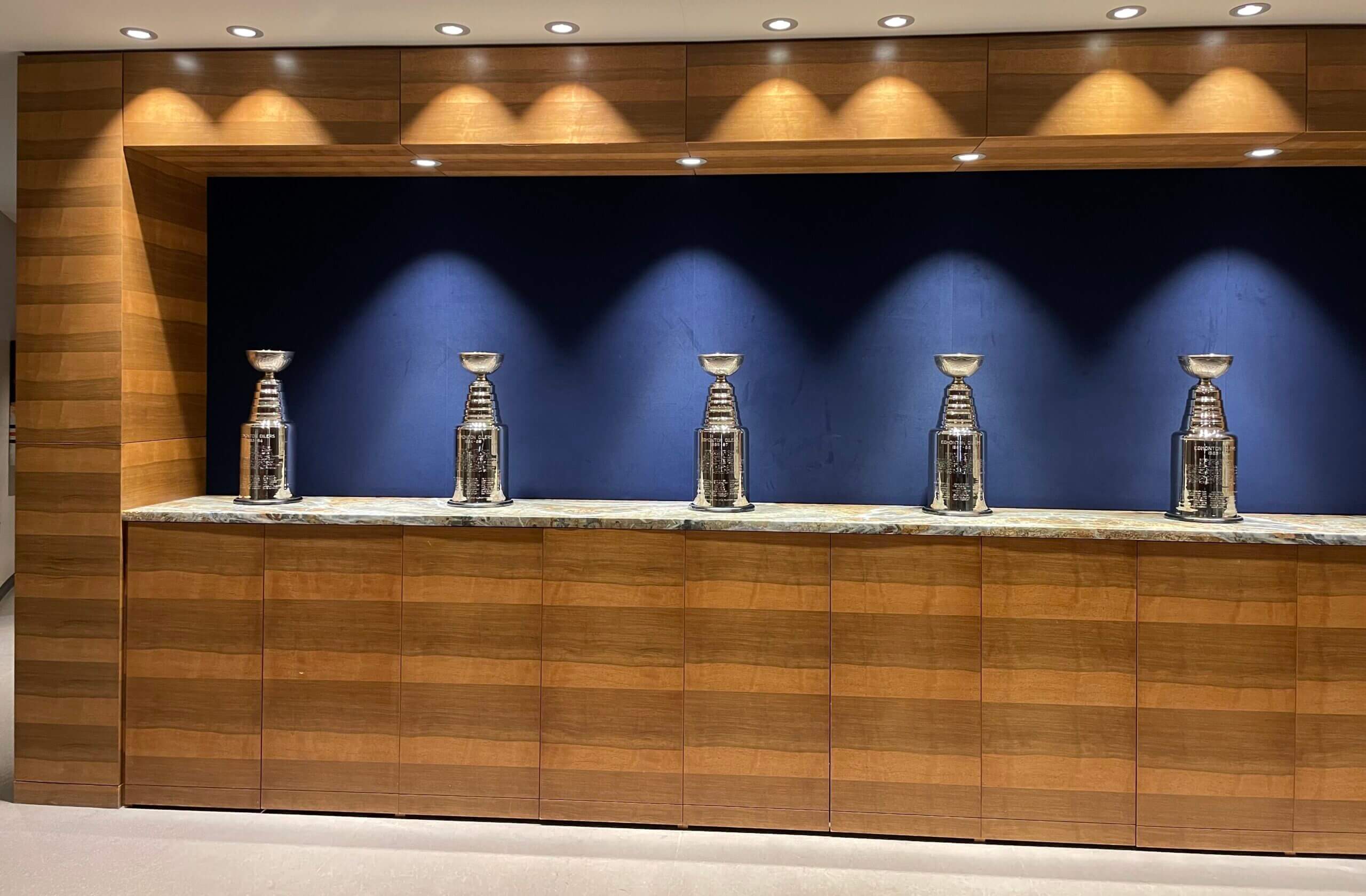
The Oilers’ championship past can be an inspiration — or a burden — for current players. (Pierre LeBrun / The Athletic)
But that’s why, for Coffey, seeing this team win a Stanley Cup would be incredibly meaningful.
“The beauty of this organization, it’s iconic,” he said. “It’s incredibly important for the people of Alberta. And for us, us being myself, Wayne, Mark (Messier), Kevin Lowe and the guys, we don’t want the old history. We want these players to rewrite new stuff.”
So while Coffey’s only pressing concern is the L.A. Kings and this playoff series at hand, he’s not going to lie, either. The idea of this team winning a Cup again is incredible.
“It would be great. It would be great for the owner, it would be great for Connor, of course, and for the province of Alberta,” Coffey said.
He paused.
“We’re legit,” he said. “Will we win it? Who knows. There’s 16 teams that are all legit or they wouldn’t be here.”
And as it turns out, the grind of coaching has been a blast.
“I get asked all the time, ‘Are you having fun?’ I wouldn’t do it otherwise,” Coffey said. “I enjoy it, I believe I have something to add so that’s why I’m doing it.”
(Top photo of Paul Coffey on the Oilers bench: Perry Nelson / USA Today)
